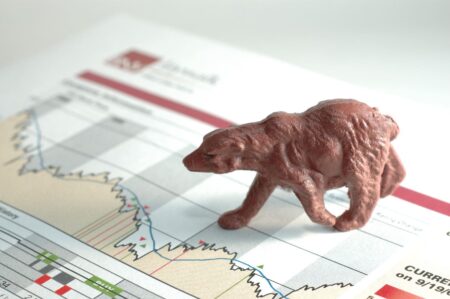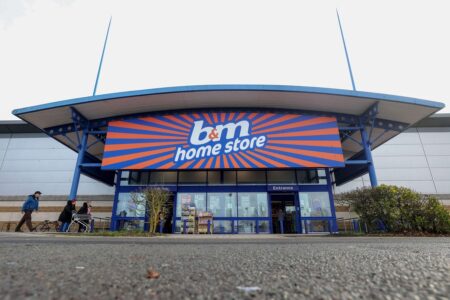Key News
Asian equities were largely lower despite a weaker U.S. dollar overnight, as Japan outperformed and India underperformed.
Hong Kong-listed growth stocks were hit with profit-taking, triggered by President Donald Trump’s last Friday night release stating “The Committee on Foreign Investment in the United States (CFIUS) will be used to restrict Chinese investments in strategic U.S. sectors like technology, critical infrastructure, healthcare, agriculture, energy, raw materials, and others.” China’s corporate investment in the U.S. has gone basically to zero, so restricting zero means zero, as the tough language has little bite.
Ironically, the China-based health care companies that have built U.S. facilities and hired U.S. employees were off the most. Wuxi Biologics was down -9.04% and Wuxi AppTec was down -10.14%, as healthcare underperformed in both Hong Kong and Mainland China. Health care stocks had been picking up on government policy support for biotech and new drug innovation.
The White House release also alluded to looking at U.S.-listed China stocks’ variable interest entity structures, despite the companies adhering to PCAOB audit reviews. The release was harsh in repeatedly calling China a “foreign adversary”, which should make US companies with high China revenues nervous, though maybe this is the “Art of the Deal”.
Hong Kong-listed internet stocks were off on profit -taking. This is despite the fact that Alibaba, which fell -2.02%, committed to invest $53 billion over the next three years “to advance its cloud computing and AI infrastructure”. The company stated that “cloud computing remains Alibaba’s clearest revenue driver in AI, with demand for AI hosting services surging”. Alibaba’s Cloud unit grew revenue by +11% year-over-year in the fourth quarter.
Real estate had a strong day as Shenzhen Metro, the Shenzhen local government, further supported distressed developer Vanke with another loan and reports of land sale prices increasing. Could the Vanke takeover playbook be repeated with other developers? We shall see.
Mainland investors bought the dip in Hong Kong today, with $1.77 billion of net buying, led by strong buying in both Alibaba and Xiaomi. Year-to-date, Mainland investors have bought a net $28.74 billion worth of Hong Kong-listed stocks via Southbound Stock Connect. Like in Hong Kong, Mainland China bounced around the room, though on very high turnover, exceeding RMB 2 trillion. As in Hong Kong, breadth (advancers vs. decliners) was mixed, as electric vehicle plays CATL and BYD fell -1.47% and -1.75%, respectively. It was a quiet night as Trip.com reported after the US close, today.
My Milan-based colleague Paolo forwarded a reader’s recommendation of Nicolai Tangen’s podcast titled, “In Good Company.” As the world’s largest institutional investor, the Norges Bank CEO interviews a wide range of investors, CEOs, and other interesting people. Please don’t hesitate to reach out anytime with recommendations!
The Hang Seng and Hang Seng Tech indexes fell 0.58% and -1.19%, respectively, on volume that declined -9.54% from Friday, which is 240% of the 1-year average. 259 stocks advanced, while 230 stocks declined. Main Board short turnover decreased -9.42% from Friday, which is 200% of the 1-year average, as 14% of turnover was short turnover (Hong Kong short turnover includes ETF short volume, which is driven by market makers’ ETF hedging). The value factor and small caps “outperformed,” meaning fell less than, the growth factor and large caps. The top-performing sectors were Real Estate, which gained +3.45%, Consumer Staples, which gained +1.34%, and Energy, which gained +0.47%. Meanwhile, the worst-performing sectors were Communication Services, which fell -3.46%, Health Care, which fell -2.66%, and Information Technology, which fell -1.03%. The top-performing subsectors were real estate management, national defense, and food. Meanwhile, software, pharmaceuticals, and consumer staples distribution were among the worst-performing. Southbound Stock Connect volumes were very high as Mainland investors bought a net $1.77 billion worth of Hong Kong-listed stocks and ETFs, including Alibaba and Xiaomi, which were large net buys, Tencent, which was a moderate net buy, Semiconductor Manufacturing International (SMIC), Meituan, Hua Hong Semiconductor, and China Unicom. CNOOC was a small net sell.
Shanghai, Shenzhen, and the STAR Board diverged to close -0.18%, +0.13%, and +0.48%, respectively, on volume that decreased -5.1% from Friday, which is 183% of the 1-year average. 2,645 stocks advanced, while 2,351 stocks declined. The value factor and small caps gained more than the growth factor and large caps. The top-performing sectors were Real Estate, which gained +2.1%, Materials, which gained +0.35%, and Consumer Staples, which gained +0.32%. Meanwhile, the worst-performing sectors were health care, which fell -0.99%; utilities, which fell -0.43%; and financials, which fell -0.37%. The top-performing subsectors were chemical fiber, construction, and fertilizers and pesticides. Meanwhile, education, biotech, and telecom were among the worst-performing subsectors. Northbound Stock Connect volumes were well above average. CNY and the Asia Dollar Index posted small gains versus the U.S. dollar. Treasury bonds fell. Copper rose while steel fell.
New Content
Read our latest article:
2025 China Outlook: A Recipe For Re-Rating
Please click here to read
Last Night’s Performance
Last Night’s Exchange Rates, Prices, & Yields
- CNY per USD 7.25 versus 7.26
- CNY per EUR 7.59 versus 7.60
- Yield on 10-Year Government Bond 1.76% versus 1.72% Friday
- Yield on 10-Year China Development Bank Bond 1.77% versus 1.73% Friday
- Copper Price -0.12%
- Steel Price -0.83%
Read the full article here
















